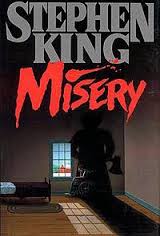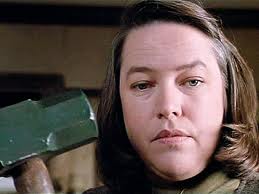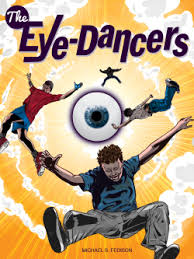In chapter 8 of The Eye-Dancers, shortly after arriving in the variant town of Colbyville, Mitchell Brant looks around and takes stock of his new surroundings. It is, to say the least, an unsettling experience . . .
“A red vehicle drove past, its chrome fenders sparkling in the sunshine. Just like the cars he’d seen in the parking lot, this one looked odd, old-fashioned. All of the cars did–parked along the roadside, tight against the curb. And there was something about the town itself, too. The flowing, curvy shape of the street lamps, the fancy script lettering on the store fronts, the phone booth across the street . . . Everything just looked dated, off, as if the axis of the universe had shifted a quarter-inch to the left.”
It is ironic that Mitchell finds himself in such a situation, feeling like the proverbial stranger in a strange land, because that’s the same way he all-too-often feels at home. About to enter the seventh grade, Mitchell has always envied the popular kids in his class. He’s never been one of them. But his feelings of isolation and awkwardness do not occur only on school property. Even his own mother seems to think he’s a little strange. In chapter 1, when his mom eyes him a certain way, the text reads . . .
“Mitchell knew that look well. It was the one that made him feel like a Martian, or a Venusian, who had crash-landed onto Earth. Come to think of it, a lot of things made him feel that way.”
Mitchell isn’t the only one in the story who harbors such feelings. Joe Marma is self-conscious because he’s the shortest boy in his class. On top of that, he has the perfect older brother, and he can never measure up, no matter how hard he tries. He has an ever-present chip on his shoulder.
Ryan Swinton struggles with always wanting to please the people around him. He has a hard time making decisions. What if he chooses a course of action that others don’t want to pursue? He compensates by making jokes, always feeling pressure to make people laugh.
From chapter 3 . . .
“There was nothing worse than delivering a punch line and having no one laugh. But the flip side was also true. Few things could match the high he felt when he told a joke and people cracked up. It was the greatest. Winning their approval. Winning their favor. It sometimes felt scary, how important that was to him.”
And Marc Kuslanski feels like a social outcast–he has no real friends, is an only child, and sometimes wonders if he ever really had a childhood to begin with. He sees other kids his age playing ball and having fun, but he always seems to be left out, perpetually on the sidelines.
This is the character backdrop of The Eye-Dancers, and when these four boys eventually find themselves in a new and different world, their sense of alienation only increases. They continually come across strange things–antique-looking cars, expressions and words they’ve never heard of, a lack of PCs and cell phones, just to name a few. As if they didn’t already struggle enough to fit in on Earth, now they have to deal with this.
I believe that the struggles of Mitchell, Joe, Ryan, and Marc mirror our own. We all, at one point or another, have wanted to fit in–somewhere. Almost everyone has experienced moments of feeling like a social outcast. I know I have.
I still remember my first day of junior high. New school. Lockers. Lots of new students from other area grade schools all coming together under one roof. In an offer of support, one of my older brothers walked me in that day, taking me to my locker. I had never used a locker in grade school. It intimidated me. It seemed a cold, alien thing, metallic, gray, impersonal. For a moment, I thought I sensed it grinning at me, as if it knew a secret I wasn’t privy to. “You’re gonna hate it here,” I imagined it saying.
My brother, then a college student, looked around at his old stomping grounds, smiling. A teacher stopped, said hello, remembering him. My brother introduced me. I shook the teacher’s hand, wishing a hole would open up right there in the hallway. I would jump in, feet first, hoping to escape into the basement, hiding behind the old pipes and furnace and whatever else lurked, unseen, in the corners. Anyplace else would be better than where I was.
The thing is–as time went on, I adjusted to junior high, and it pushed me to become a better student. I met new friends, learned new lessons. I began to grow up. When you’re twelve or thirteen, you are searching for your place in this world. So many options exist, just beyond the horizon. After junior high, there is high school, then perhaps college, a career. It is an exciting yet overwhelming time.
Back then. I wasn’t sure what I wanted to do with my life. For a while, I wanted to be a marine biologist. Then a private detective. Then a teacher. In the end, my love of writing won out, and I decided to pursue a career in the written word. That, I eventually came to believe, was my place in this world.
For Mitchell Brant and Joe Marma and Ryan Swinton and Marc Kuslanski, they must also find their place in this world. But before they can do that, they must first find their place, and themselves, in another, far-off world, a world where the axis of the universe may indeed seem shifted a quarter-inch to the left, but where, also, they will be forced to confront and overcome their insecurities and inner demons.
The Eye-Dancers, at its core, is a story about growing up, discovery, and keeping the faith even in the midst of adversity. While it tackles concepts of quantum physics and journeys to an alternate reality, it is, I hope, a story everyone can relate to.
After all, we all experienced that first day of junior high. And if that wasn’t a trip to an alternate reality, I’m not sure what is . . .
Thanks so much for reading!
–Mike
























































